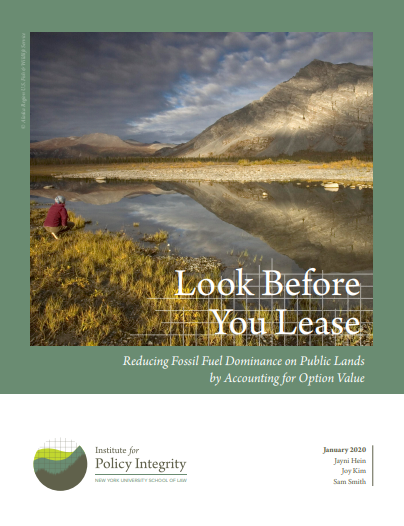-
Look Before You Lease
Reducing Fossil Fuel Dominance on Public Lands by Accounting for Option Value
While the Trump administration’s goal of “energy dominance” has increased the public lands available for oil and gas development, no effort has been made to modernize the leasing system, even in the face of climate change. Our report explains how option value—which accounts for the informational value gained by delaying leasing decisions—can and should be factored into the Bureau of Land Management’s land use planning processes. Accounting for option value at multiple stages of the land use planning process would significantly improve BLM’s public lands stewardship, better protect the environment, and regain some of the economic and strategic advantages it has ceded to private developers. The report also describes case studies where BLM’s failure to consider option value has led to costly litigation and missed opportunities.
-
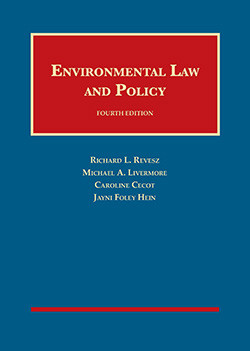
Environmental Law and Policy, 4th Ed.
This casebook emphasizes environmental policy, as well as the structure and details of the federal environmental statutes. It focuses students’ attention on how tradeoffs between environmental goals and social goals are resolved in different and difficult contexts. The book has been updated to reflect new developments in the law of natural resource management, water pollution, and climate change.
-
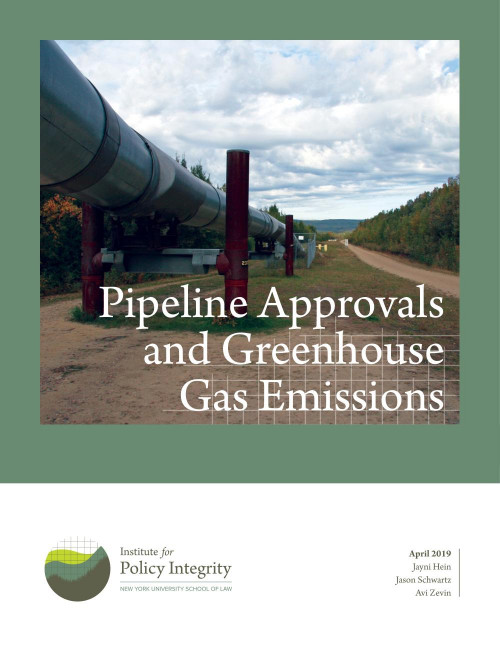
Pipeline Approvals and Greenhouse Gas Emissions
In light of growing public awareness of the environmental effects of pipeline projects, the Federal Energy Regulatory Commission (FERC) has faced competing pressures regarding how to balance the need for new natural gas pipelines with their environmental consequences. Concerns about greenhouse gas (GHG) emissions and resulting climate change effects have become a flashpoint in the debate. Our report examines the legal context surrounding FERC’s evaluation of the environmental impacts of proposed interstate natural gas pipelines. We look at FERC’s obligations under the Natural Gas Act and the National Environmental Policy Act, as well as potential improvements the agency can make to its analyses to better inform policy makers and the public about the impacts of proposed projects.
-
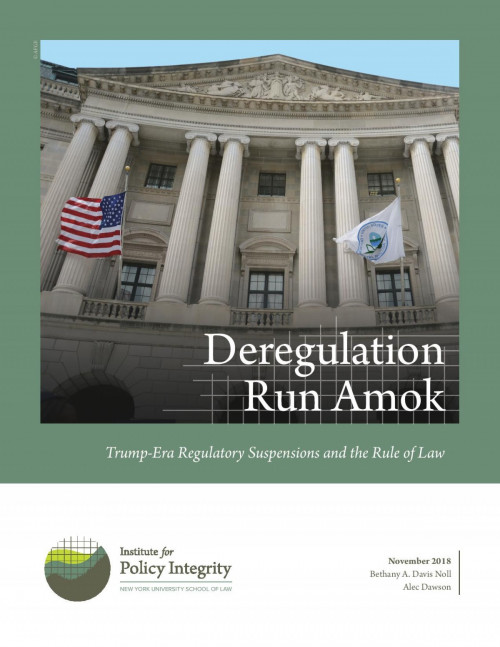
Deregulation Run Amok
Trump-Era Regulatory Suspensions and the Rule of Law
Our report provides a survey of the legality of Trump Administration’s regulatory suspensions. Looking at a number of cases, we discuss the administration’s disregard for notice-and-comment requirements, statutory restrictions, and the reasoned explanation requirement. We also lay out some of the challenges facing advocates, and the strategies by which agencies have evaded review.
-
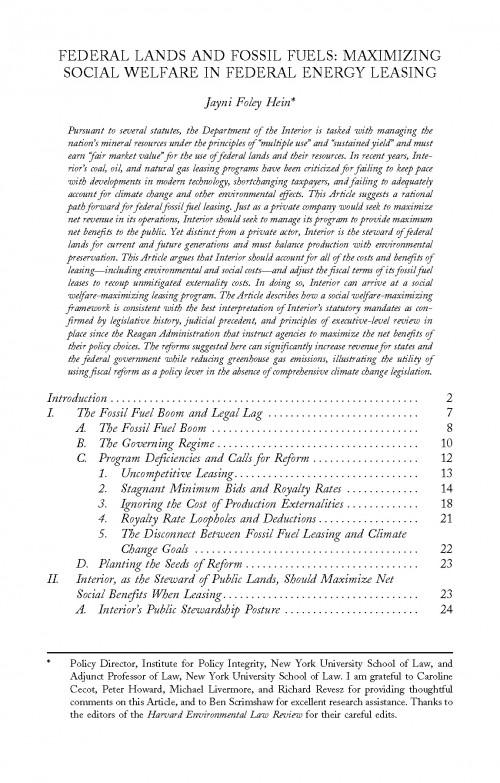
Federal Lands and Fossil Fuels: Maximizing Social Welfare in Federal Energy Leasing
Published in the Harvard Environmental Law Review.
The Department of the Interior is tasked with managing the nation’s mineral resources and must earn a “fair market value” for the use of federal lands and resources. But in recent years, Interior’s coal, oil, and natural gas leasing programs have been criticized for failing to keep pace with developments in modern technology, shortchanging taxpayers, and failing to adequately account for climate change and other environmental effects. This article, published in the Harvard Environmental Law Review, suggests a rational path forward for federal fossil fuel leasing. Just as a private company would seek to maximize net revenue in its operations, Interior should seek to manage its program to provide maximum net benefits to the public, to whom public resources belong. This includes accounting for all of the costs and benefits of leasing—including environmental and social costs—and adjusting the fiscal terms of its fossil fuel leases to recoup unmitigated externality costs.
Viewing all publications in Natural Resources

